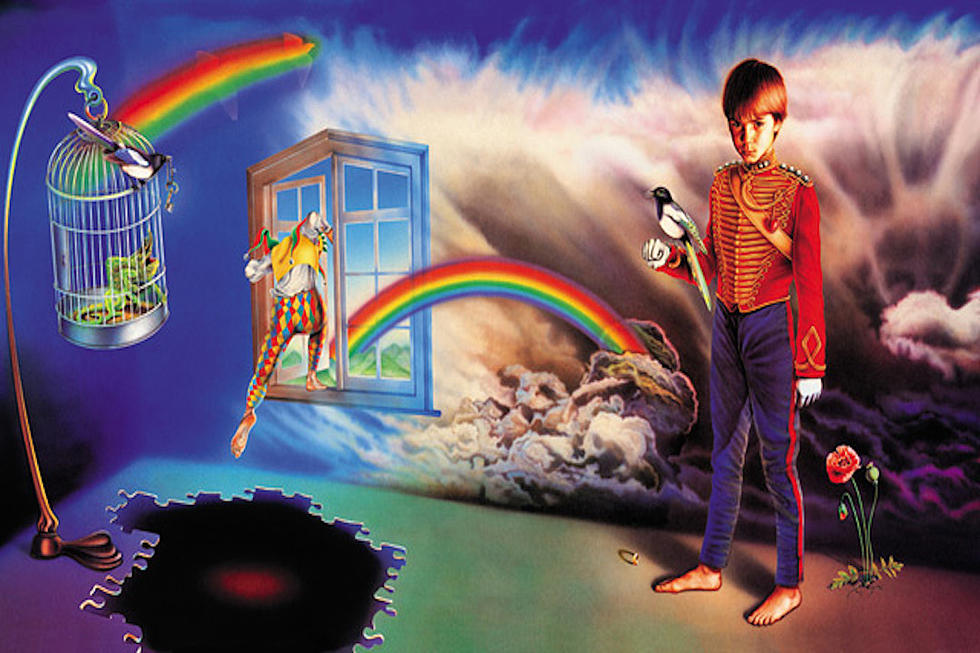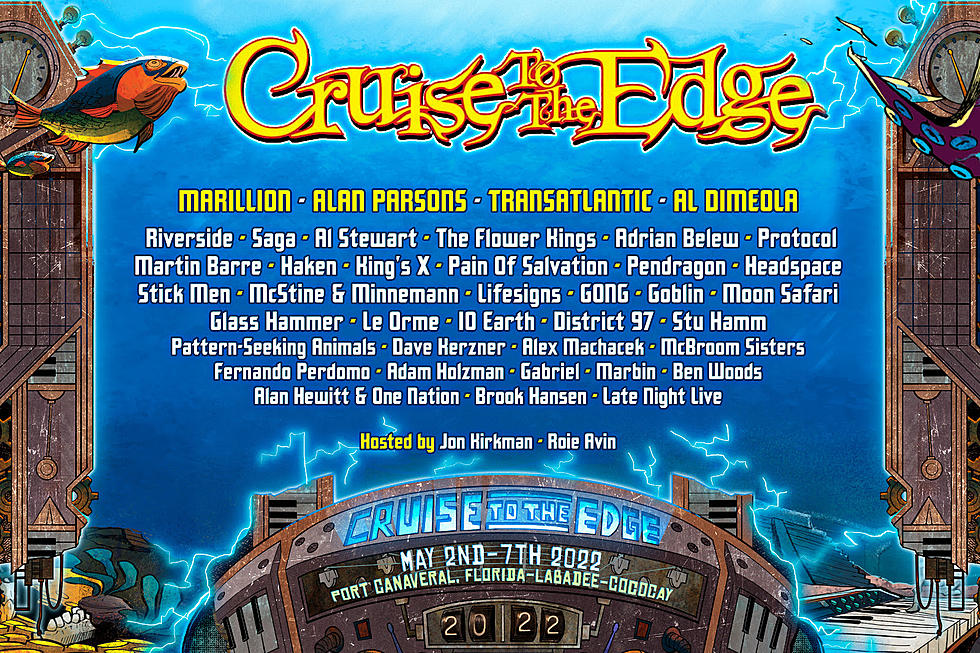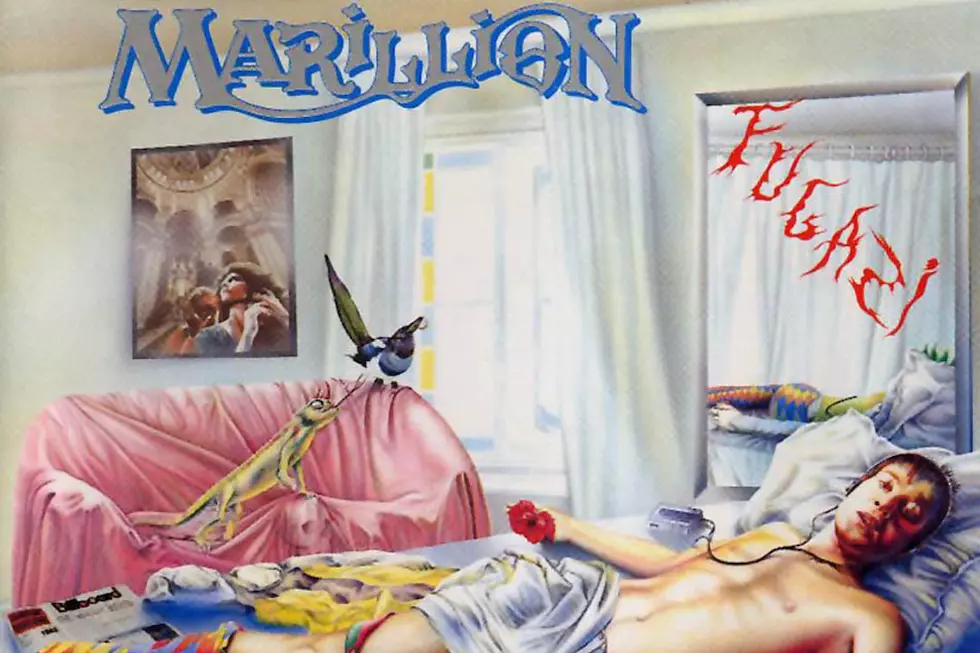
How Marillion Helped Resurrect Prog on ‘Misplaced Childhood’
Prog rock was mostly dead and buried by 1985, but Marillion helped resurrect the genre – albeit in a glossier, streamlined context – with Misplaced Childhood.
The band's third album, released on June 17, 1985, soared to No. 1 on the U.K. chart on the strength of the hit singles "Kayleigh" and "Lavender" – and proved the commercial success of the previous year's Fugazi was no fluke. But Marillion also reached their creative zenith on the LP, which remains the cornerstone of the entire "neo-prog" movement.
Misplaced Childhood is a loosely assembled concept album spearheaded by then-frontman Fish, who weaves together fractured ruminations on adolescence, lost love and the downside of rock stardom. The singer-lyricist reportedly came up with the bold idea during a 10-hour acid trip. Staring at a print by Jerry Schurr called "Padres Bay," Fish found his inspiration.
"I was in 'Padres Bay' when suddenly I felt a child standing behind me on the stairs," he said in 1998. "I knew he was dressed as a soldier and vanished as soon as he entered the corner or my eye. Perhaps it was my muse; perhaps it was the drug. It was enough to propel me into reaming off a large scrawl of prose."
That cohesive thematic structure is mirrored by the arrangements, which flow elegantly from the artful synth-and-volume-pedal textures of opener "Pseudo Silk Kimono" to triumphant rock closer "White Feather." Steve Rothery's New Wave-y riffs give the album a decidedly '80s sheen, but his Steve Hackett-esque solos keep the songs grounded in the prog idiom. Keyboardist Mark Kelly takes a similar approach, moving from breezy synth pads to intricate melodic runs.
The lightweight "Kayleigh" became Marillion's breakout hit, peaking at No. 2 on the U.K. chart. But its straightforward verse-chorus structure and soft-pop chorus gave noodly-minded fans cause for concern. ("Didn't I break your heart?" Fish croons on the track. The answer, for some fans, was a resounding "yes.")
Watch Marollion Perform 'Kayleigh'
"One of my most vivid memories of the time was when my wife to be, Jo, asked me to explain how I came up with my musical ideas, picking up a nearby guitar I started improvising what later became the 'Kayleigh' riff whilst explaining that I tried to combine melody and rhythm," Rothery said. "I sometimes wonder if we would have still written 'Kayleigh' if she had asked me if there was anything good on the telly instead!"
But even if Misplaced Childhood sounds seamless, the songs weren't easy to assemble. "Most of the album was written and arranged, in some cases even down to the solos," explained keyboardist Mark Kelly. "Being a concept album we attempted to make the music flow seamlessly from one song to the next which presented a few problems. ‘Lords of the Backstage' originally followed ‘Lavender' but was moved at the last minute to follow ‘Waterhole.' I was asked to come up with a link section to get us from 'Waterhole' into 'Lords' the day we recorded the master. I felt under a lot of pressure and was not happy with the result because it sounds forced to me."
The quintet – also including bassist Pete Trewavas and drummer Ian Mosley – recorded the songs at Hansa Studios in Berlin, during a turbulent time for the city.
"Now when you think if it, Berlin was a walled city at the time," Trewavas said. "After all, it was early 1985. If you had enough money you could buy whatever you wanted. There was a great little bar under the studio where we all discovered the most horrible drink in the world (begins with an M by the way). My most memorable moment is probably playing pool with Ian against Depeche Mode and the keyboard player who wore the dress got the winning shot. (I was so embarrassed.) P.S.: He had a fantastic looking girlfriend."
One year after the release of Marillion's fourth album, 1987's Clutching at Straws, Fish left the band to pursue a solo career. Steve Hogarth joined the line-up for 1989's Seasons End and has remained frontman ever since. In keeping, Misplaced Childhood continued to hold "a lot of memories from a period that was very exciting and crammed with experiences both dark and magical" for Fish, as he said in an announcement for an anniversary tour in 2015.
"The lyrics on that album hold a very special meaning to me as they were written by a young man on the cusp of fame and dealt with a lot of personal issues," Fish added. "It was not only a breakthrough album for the band but also for me as an artist because I was finally discovering my own individual style as a lyricist and singer."
The Top 100 Albums of the '80s
More From Ultimate Classic Rock









